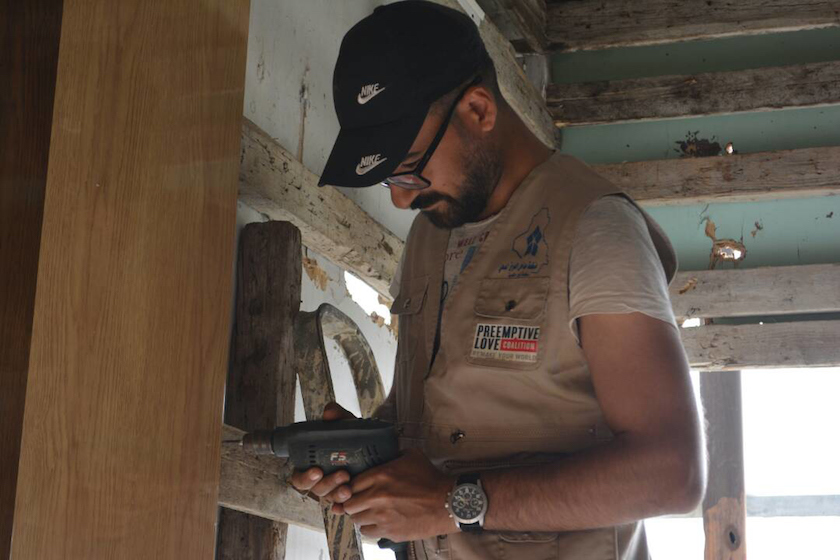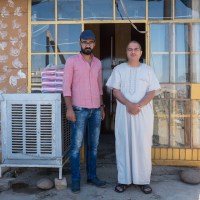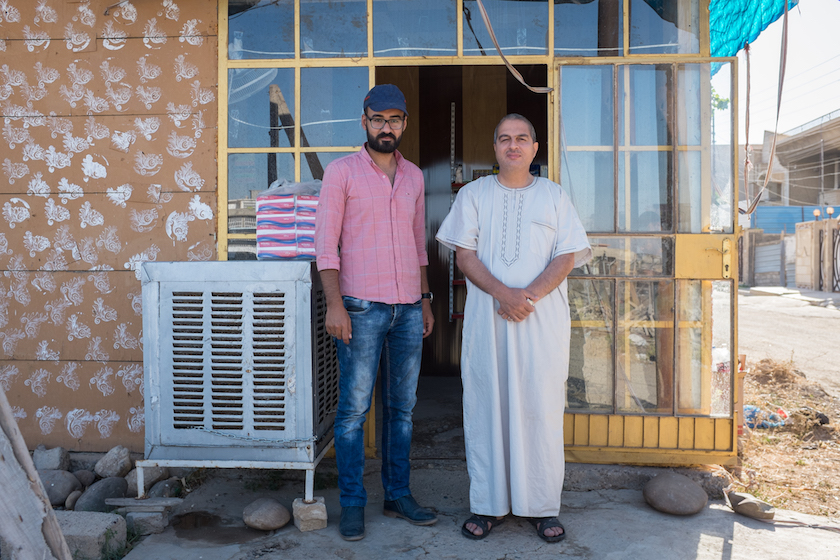“Everywhere we go, everywhere we flee, everywhere we stay…we still feel like we are strangers. We are not in our home—the place that we loved and lived.”
We pick up Usama early in the morning, and he spends the day guiding us through east Mosul. The city is divided in half by the Tigris river, and while Iraqi forces are still actively fighting to defeat ISIS in west Mosul, the east side of the city was liberated in January and rebuilding is already underway.

Mosul is Usama’s hometown—a place he’s known since birth. He and his neighbours were driven out by ISIS—before the city became a prison—and they’ve struggled to find their place ever since. The City of Mosul has a presence as real as any person, and being separated from their beloved hometown is emotionally painful. “We feel that we are strangers—we are lost, we are so far from our city, from our land.”
“Is it hard to be in this city now [during the war]? To see it like it is now?”
“Absolutely!” Usama doesn’t hesitate. “The first time I came [back] here I was in shock when I saw this city.”
For some, lost-ness is paralyzing. For Usama, it’s transforming. Instead of investing his life and energy into the city of his refuge, he returns to Mosul as neighbourhoods are liberated and helps to rebuild his hometown by managing our small business grants in the city.
Everything we do is about building local capacity. We invest in local people and local institutions in order to strengthen communities that will endure well after we are gone. We partner with Iraq Health Access Organization because they are a local institution we believe in. Partnering with them allows us to serve families in cities across the country through locals—people who love their city and its people. People who know the complexities of local history, culture, and politics.
In Mosul, one of those passionate, local people is Usama.

Zaid was in a tight spot when we met him. His neighbourhood in east Mosul had been liberated from ISIS, but that didn’t change the fact that he was a man living in a city still at war, with debilitating back problems, no work prospects, and a family to feed.
Usama spent time with Zaid to understand his needs and physical limitations and together they came up with a businesses strategy. Zaid needed to work close to home, as he is unable to walk long distances, and he needed a job that would allow him to sit when his back pain made his legs too weak to support him. Since there is a school just two blocks away, they settled on opening a copy and stationery shop that would serve the neighbourhood’s students.

Once Zaid settled on a business, the next big hurdle was finding a location—there wasn’t a single empty shop in the neighbourhood. However, a neighbour had an old shed they weren’t using and they offered it to Zaid for his shop. It was a good start, but Zaid didn’t have the physical ability to renovate the structure and turn it into a shop.
But Usama did.

Over the course of four days, Usama and a few friends transformed the ramshackle structure into a clean, functional store that serves Zaid and his customers.

Usama even took the time to hand-stamp the exterior with a pretty pattern. Together they transformed an eyesore into a bright spot in the city.

Renovations are not part of Usama’s job description. He served Zaid purely out of love for his city and love for his people.
You provided the small business grant that made all of this possible for Zaid—and his new shop is beautiful! When you sponsor, donate, or make a purchase from our store, you support businesses like this one and meet the people of Mosul in their lost-ness. And by showing up in the form of small business grants, you provide a bit of redemption for Usama, for Zaid, and help unmake violence in a city that was destroyed by it.
Help the people of Mosul unmake violence and rebuild their city.


